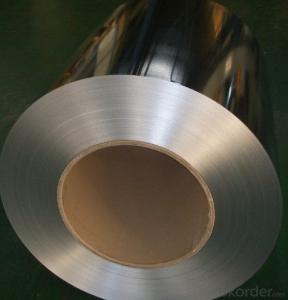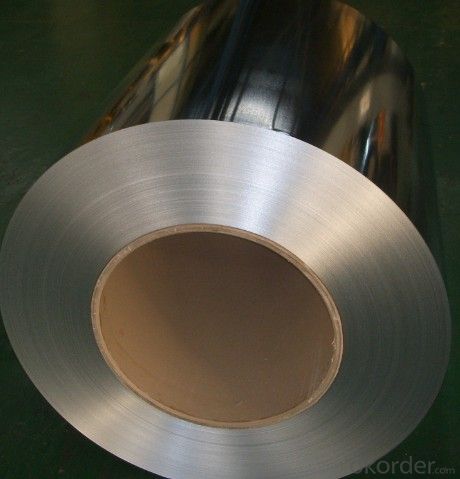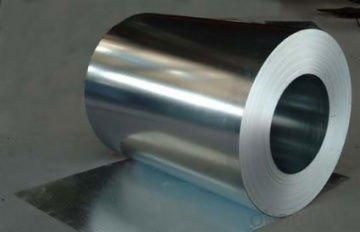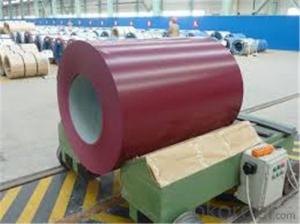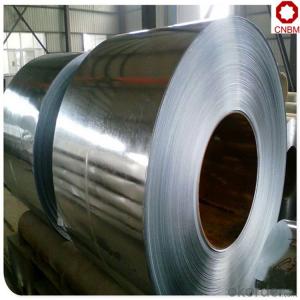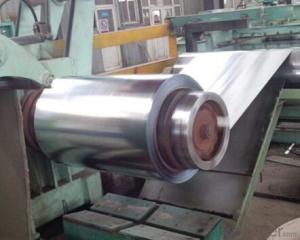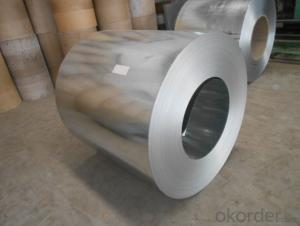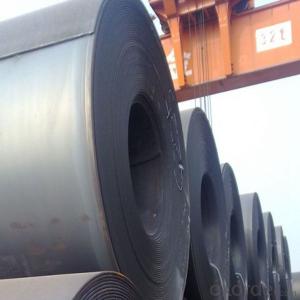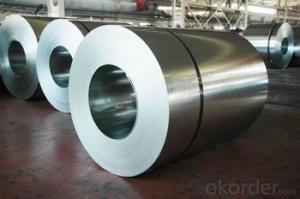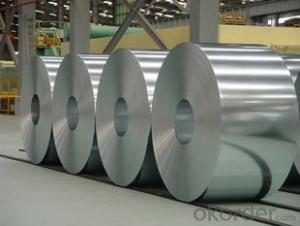Hot-Dip Galvanized Steel Coil/Sheet in competitive Price and Best Quality
- Loading Port:
- Shanghai
- Payment Terms:
- TT OR LC
- Min Order Qty:
- 50 m.t.
- Supply Capability:
- 10000 m.t./month
OKorder Service Pledge
OKorder Financial Service
You Might Also Like
Hot-dip Zinc Coating Steel Building Roof Walls
1.Structure of Hot-Dip Galvanized Steel Sheet Description:
Hot-dip galvanized steel coils are available with a pure zinc coating through the hot-dip galvanizing process. It offers the economy, strength and formability of steel combined with the corrosion resistance of zinc. The hot-dip process is the process by which steel gets coated in layers of zinc to protect against rust. It is especially useful for countless outdoor and industrial applications. Production of cold formed corrugated sheets and profiles for roofing, cladding, decking, tiles, sandwich walls, rainwater protective systems, air conditioning duct as well as electrical appliances and engineering.
2.Main Features of the Hot-Dip Galvanized Steel Sheet:
• Excellent process capability
• Smooth and flat surface
• Workability, durability
• Excellent anticorrosive property
• High strength
• Good formability
• Good visual effect
3.Hot-Dip Galvanized Steel Sheet Images
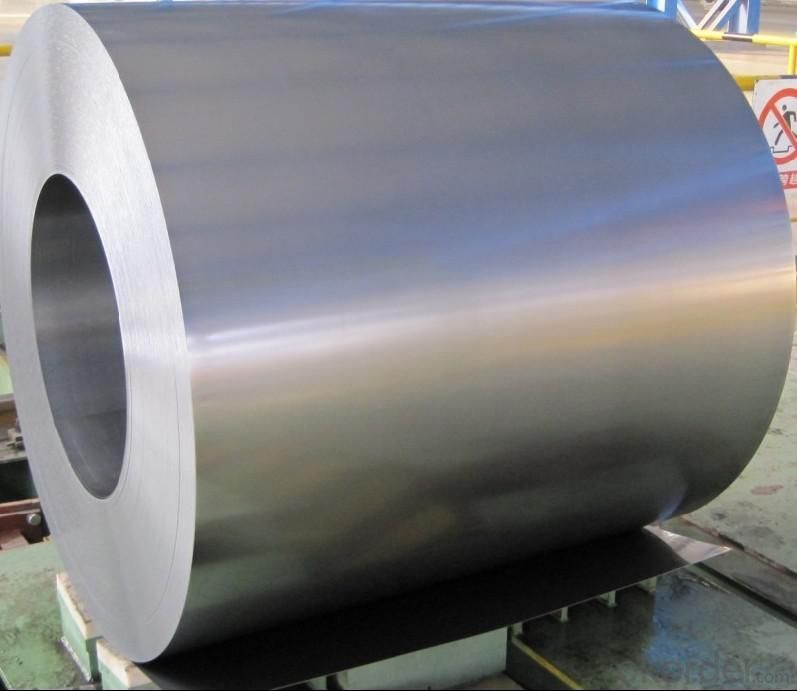
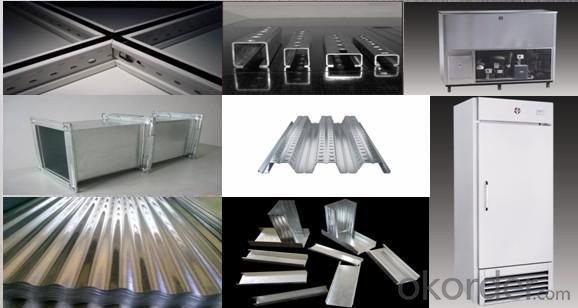
4.Hot-Dip Galvanized Steel Sheet Specification
Standard: ASTM, JIS,EN
Grade: CS, DX51D+Z,SGCC, SS 230~550,S220GD+Z~S550GD+Z, SGC340~SGC570
Thickness: 0.1mm~5mm
Width: max 2000mm
Coil weight:3-12 MT
Coil ID:508/610mm
Surface structure: zero spangle, regular spangle or minimum spangle
Surface treatment: Chromate treatment, Oiled/dry, skinpassed/non-skinpassed
Packing: Standard seaworthy export package
Technology test results:

5.FAQ of Hot-Dip Galvanized Steel Sheet :
We have organized several common questions for our clients,may help you sincerely:
1.How about your company?
A world class manufacturer & supplier of castings forging in carbon steel and alloy steel,is one of the large-scale professional investment casting production bases in China,consisting of both casting foundry forging and machining factory. Annually more than 8000 tons Precision casting and forging parts are exported to markets in Europe,America and Japan. OEM casting and forging service available according to customer’s requirements.
2.How to guarantee the quality of the products?
We have established the international advanced quality management system,every link from raw material to final product we have strict quality test;We resolutely put an end to unqualified products flowing into the market. At the same time, we will provide necessary follow-up service assurance.
3. How long can we receive the product after purchase?
Usually within thirty working days after receiving buyer’s advance payment or LC. We will arrange the factory manufacturing as soon as possible. The cargo readiness usually takes 15-30 days, but the shipment will depend on the vessel situation.
- Q: How are steel coils used in the production of metal enclosures?
- Steel coils are widely used in the production of metal enclosures due to their versatility and strength. These coils, which are typically made from high-quality steel, serve as the primary raw material for manufacturing metal enclosures. Firstly, the steel coils are unrolled and flattened to the desired thickness using specialized machinery. This process ensures that the coils are in a suitable form for further processing. The flattened steel is then cut into specific sizes and shapes, depending on the design requirements for the metal enclosure. Next, the cut steel pieces are formed into the desired shape using various techniques such as bending, folding, and welding. These processes allow the steel to be molded into the required dimensions and structure of the metal enclosure. The inherent strength and durability of the steel coils ensure that the final product is sturdy and can withstand external forces or impacts. Additionally, steel coils can be coated with protective layers such as galvanization or powder coating to enhance their resistance to corrosion, rust, or other environmental factors. This coating helps to prolong the lifespan of the metal enclosure and maintain its aesthetic appeal. Moreover, the use of steel coils in the production of metal enclosures allows for customization and flexibility. The coils can be easily manipulated to create complex shapes or designs, enabling manufacturers to cater to specific customer requirements. This adaptability makes steel coils a preferred choice in industries such as automotive, electronics, and construction, where metal enclosures are widely used. In summary, steel coils play a crucial role in the production of metal enclosures by providing a strong and versatile raw material. These coils are transformed into the desired shape and size, ensuring the durability and functionality of the enclosures. With their customizable nature and protective coatings, steel coils offer a cost-effective solution for manufacturing high-quality metal enclosures.
- Q: How do the sandpaper grits compare with different coarse levels of steel wool? For example, I'm finishing a homemade entertainment center, and using a tinted polyurethane, and it says to use 000 grade steel wool, but mine is #3, could I use some sanpaper instead, and what grit?
- 150 grit is standard for final sanding for poly. You could use 220 if you finish with something thinner like lacquer of if that's all you have. Even finer would work but not do much sanding.
- Q: Steel used to be made in the #92;Bessemer Converter, write about how steel making processes today produce better quality steel????
- how we can prepared steel by using converter? ans it
- Q: What are the different methods of testing steel coils for quality control?
- There are several methods commonly used to test steel coils for quality control. These methods ensure that the steel coils meet the required specifications and standards. 1. Visual Inspection: This is the most basic method of testing steel coils. It involves a thorough visual examination of the coils for any surface defects such as scratches, dents, or irregularities. Visual inspection helps identify any visible defects in the material. 2. Dimensional Measurement: Another important method is dimensional measurement. This involves using various tools like calipers, micrometers, or laser measuring devices to assess the dimensions of the steel coils. The measurements are compared against the specified tolerances to ensure they meet the required standards. 3. Hardness Testing: Hardness testing determines the resistance of the steel coils to indentation or penetration. It helps assess the strength and durability of the material. Common hardness testing methods include Rockwell, Brinell, and Vickers hardness tests. 4. Tensile Strength Testing: Tensile strength testing measures the maximum amount of tensile stress a steel coil can withstand before breaking or deforming. This test helps determine the strength and elasticity of the material and ensures it meets the required specifications. 5. Chemical Analysis: Chemical analysis involves testing the composition of the steel coils to verify if they contain the desired amount of specific elements. This is crucial for ensuring the coils are made from the correct grade of steel and comply with the required chemical composition standards. 6. Coating Thickness Measurement: In case the steel coils have a protective coating, it is important to measure the thickness of the coating. This is typically done using non-destructive testing methods like magnetic induction or eddy current testing. The coating thickness is compared against the specified requirements to ensure it provides adequate protection. 7. Surface Roughness Measurement: Surface roughness testing assesses the smoothness or roughness of the steel coil's surface. This is done using instruments like profilometers or roughness testers. Surface roughness testing helps ensure the coils meet the required surface finish standards. 8. Ultrasonic Testing: Ultrasonic testing utilizes high-frequency sound waves to detect internal defects such as cracks, voids, or inclusions within the steel coils. It is a non-destructive testing method that provides valuable information about the coil's structural integrity. 9. Magnetic Particle Inspection: This method is used to identify surface and near-surface defects in steel coils. Magnetic particles are applied to the surface, and any magnetic leakage caused by defects is detected using magnetic sensors. This technique is particularly effective for detecting cracks and other surface abnormalities. By employing a combination of these testing methods, manufacturers can ensure that the steel coils produced meet the required quality standards and are suitable for their intended applications.
- Q: Can steel coils be used in the manufacturing of machinery and equipment?
- Yes, steel coils can be used in the manufacturing of machinery and equipment. Steel coils are versatile components that provide strength, durability, and stability to various industrial applications. They can be shaped, cut, and formed into different parts and components necessary for the machinery and equipment manufacturing process. Steel coils are commonly used in the production of gears, shafts, frames, brackets, and other structural elements. Additionally, they can be processed further to create specialized components such as springs or fasteners. The use of steel coils in machinery and equipment manufacturing ensures that the end products are of high quality, capable of withstanding heavy loads, and have a long lifespan.
- Q: What are the different types of steel coil coatings for heat resistance?
- There are several different types of steel coil coatings that provide heat resistance, including silicone-modified polyester (SMP), polyvinylidene fluoride (PVDF), and high-temperature silicone.
- Q: What are the main steel coil producing countries?
- The main steel coil producing countries are China, Japan, India, the United States, and Russia.
- Q: Can steel coils be coated with heat-resistant materials?
- Yes, steel coils can be coated with heat-resistant materials.
- Q: I've heard different things bout them, though I do not know this. Oh, and if you know where you can buy some raw or get custom made stuff out of black steel please let me know it would be greatly appreciated. Oh and my friend told me there is a black steel that can be sharpened and silver will be underneath, is this also true? Thank you very much for answering ^^
- black steel and black tron are not same.
- Q: What are the common coil defects and their causes?
- Common coil defects include: 1. Coil breaks: These are caused by improper handling, excessive tension, or defects in the raw material. They result in breaks or fractures in the coil. 2. Edge waves: Edge waves occur due to uneven tension during winding, improper coil alignment, or excessive elongation. This leads to wavy or uneven edges in the coil. 3. Buckling or wrinkling: Buckling or wrinkling can be caused by excessive elongation, improper winding tension, or uneven cooling. It results in irregularities or folds in the coil surface. 4. Slivers: Slivers are thin strips of material that can be present on the surface of the coil. They are typically caused by poor shearing or cutting processes, improper cleaning, or debris in the production line. 5. Oil spots: Oil spots are oily or greasy stains that can appear on the coil surface. They are usually caused by inadequate cleaning or lubrication during the manufacturing process. 6. Coating defects: Coating defects can include uneven or inconsistent coating, bubbles, or peeling. These defects can be caused by issues with the coating application process, improper drying or curing, or contamination in the coating material. It is important to address these coil defects promptly to ensure product quality and prevent further issues during subsequent processing or usage.
Send your message to us
Hot-Dip Galvanized Steel Coil/Sheet in competitive Price and Best Quality
- Loading Port:
- Shanghai
- Payment Terms:
- TT OR LC
- Min Order Qty:
- 50 m.t.
- Supply Capability:
- 10000 m.t./month
OKorder Service Pledge
OKorder Financial Service
Similar products
Hot products
Hot Searches
Related keywords
